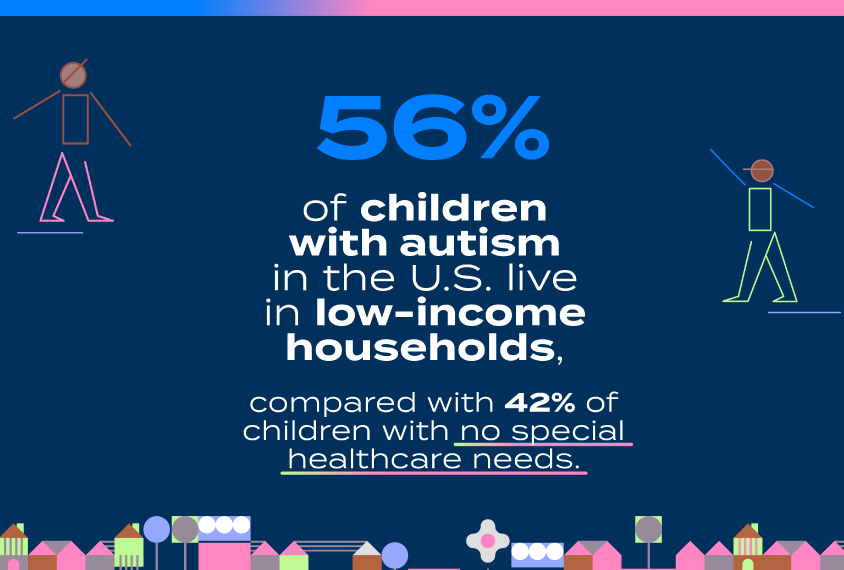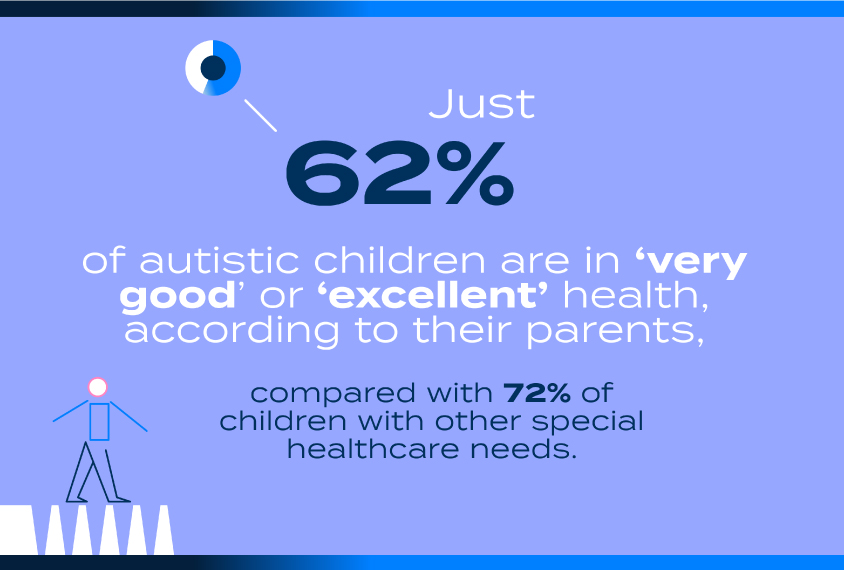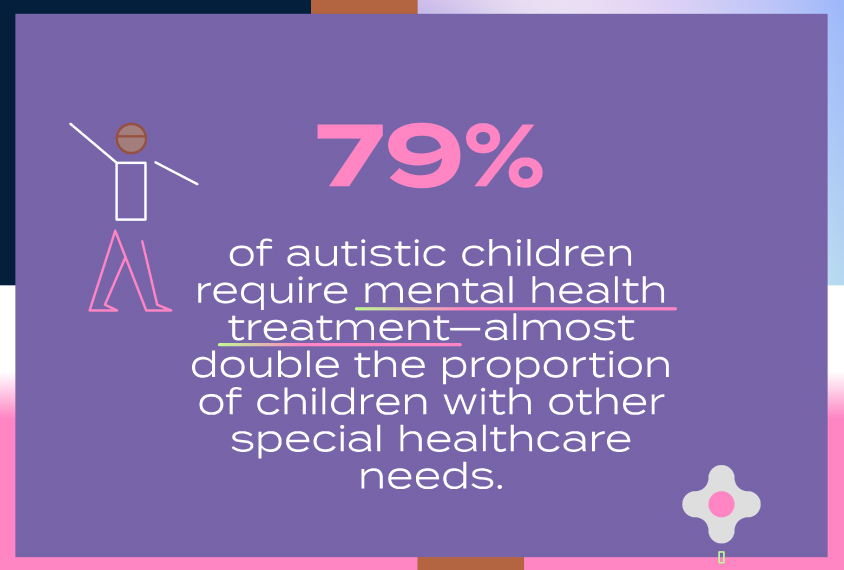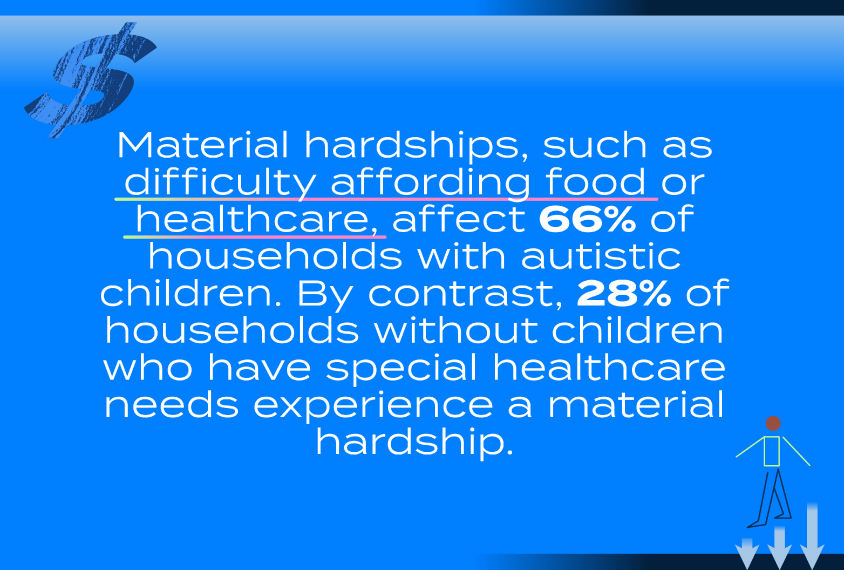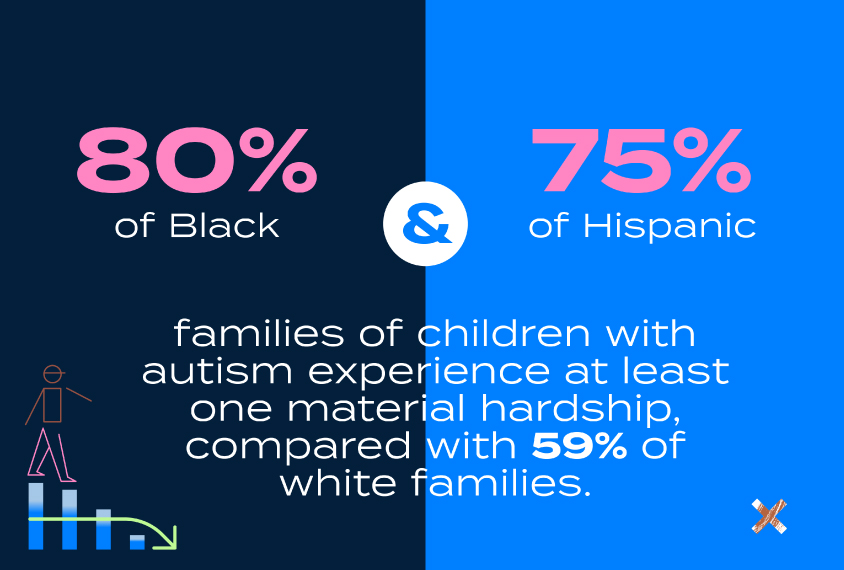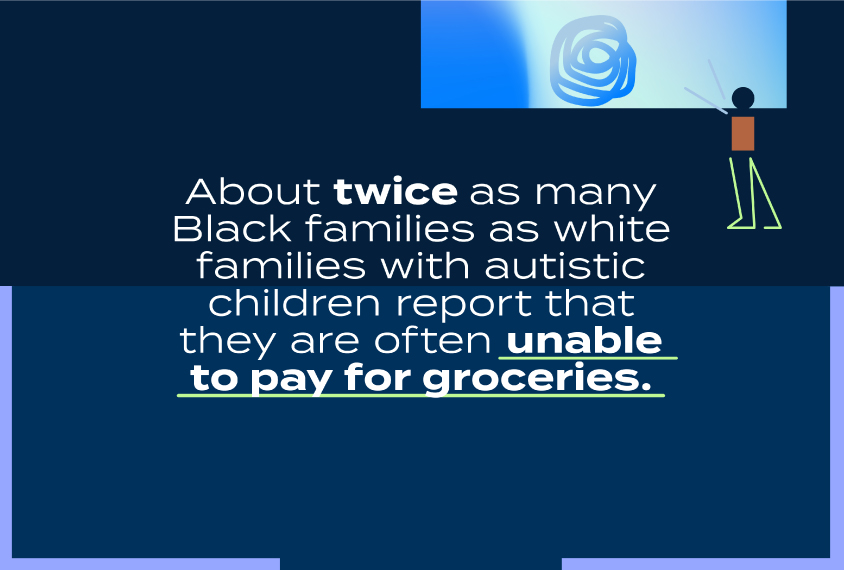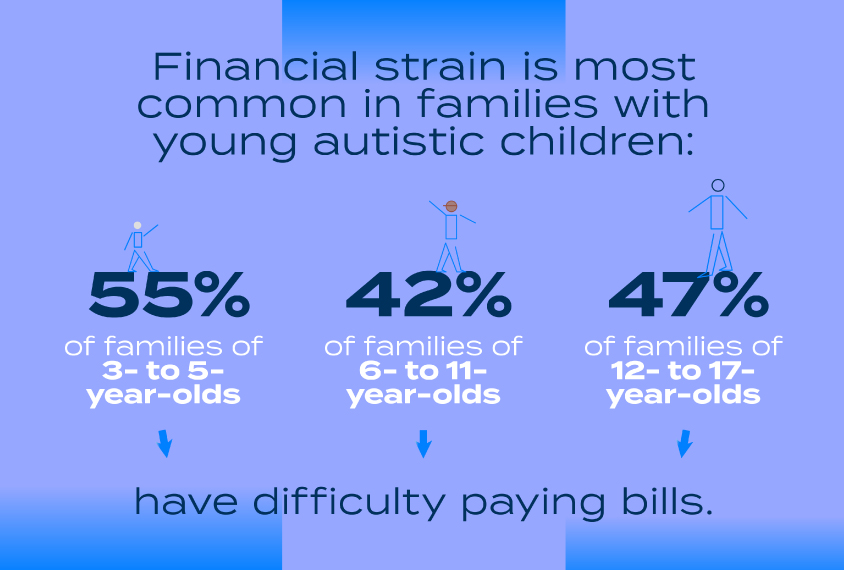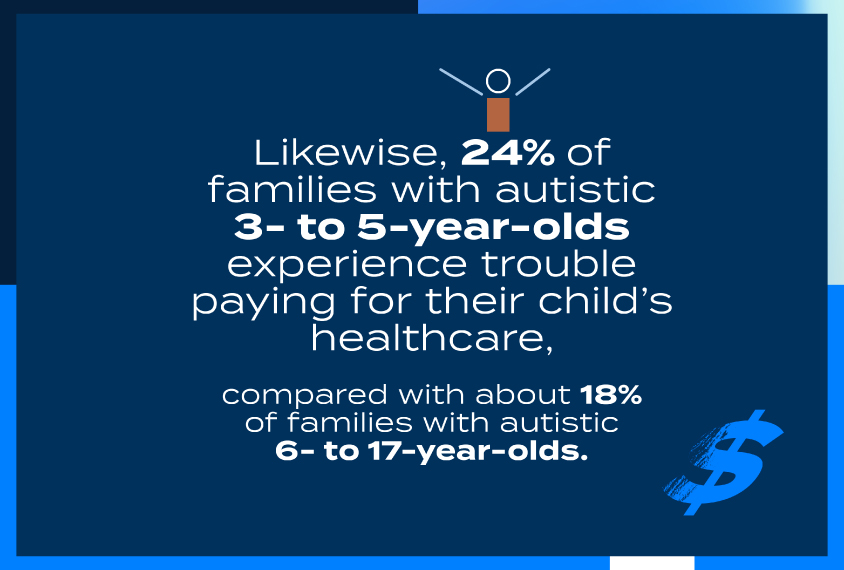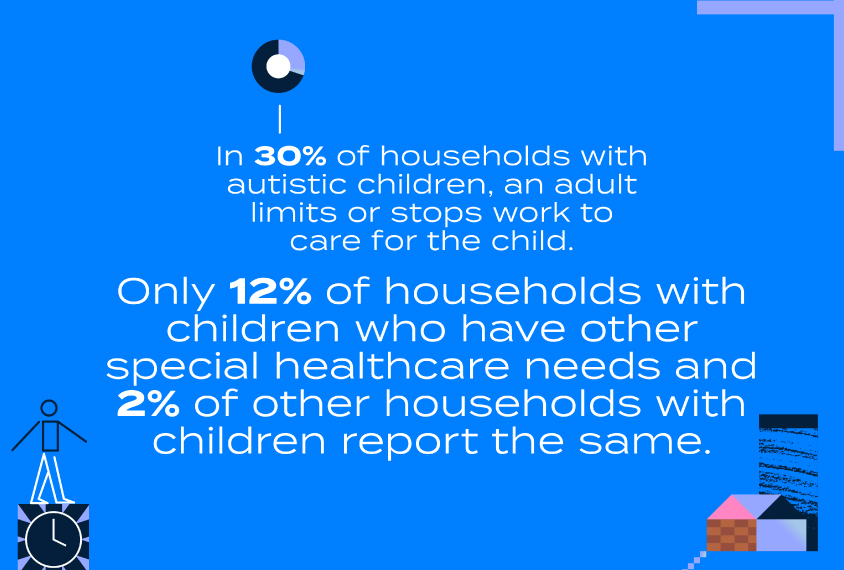This article is more than five years old.
Neuroscience—and science in general—is constantly evolving, so older articles may contain information or theories that have been reevaluated since their original publication date.
Children younger than age 5 and Black and Hispanic children on the spectrum experience the most financial hardships.

